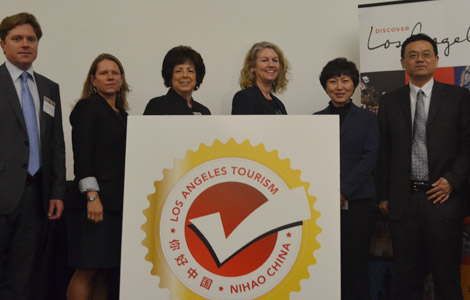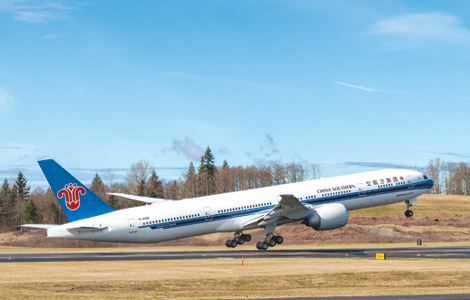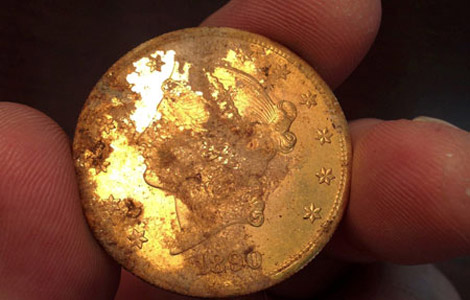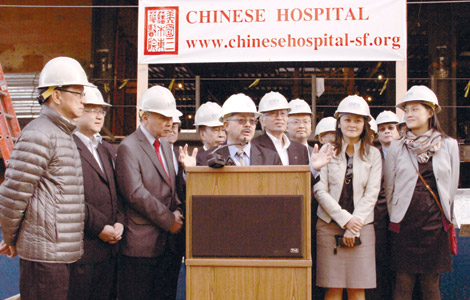Baucus can bring China to Congress
Updated: 2014-02-28 07:23
By Paul Haenle (China Daily USA)
|
||||||||
Senator Max Baucus of Montana was sworn in by US Vice-President Joseph Biden on Feb 21 as the country's new ambassador to China. The decision to nominate Baucus, according to many, was influenced by the US administration's domestic political calculus and the senator's work on US-China trade matters. But Baucus has another asset that should not be overlooked: 35 years of experience in US Congress. He is well positioned to help bridge the gap of understanding and trust between Congress and China, which could lead to more effective US and Chinese policymaking.
Chinese President Xi Jinping and US President Barack Obama have made it a priority to deepen their personal relationship and better understand each other's foreign and domestic priorities. But Chinese officials still need a better understanding of how the US government functions between the executive and legislative branches, and US Congress needs a more sophisticated understanding of China and to pay greater attention to the country.
Members of the US House of Representatives are the closest public officials to the American people and can be important educators of their constituents on China and foreign policy issues. Yet close familiarity with and consistent focus on China has been lacking on Capitol Hill primarily because US representatives are elected to look after the interests of their constituents, not necessarily for their foreign policy expertise. What's more, internal and domestic matters have recently consumed the congressional agenda because of Washington's political gridlock and high turnover in the House (new members do not usually focus on foreign policy).
The bipartisan US-China Working Group, is meant to address this gap in expertise about and dedicated interest in China. Formed in 2005 and led by Congressmen Rick Larsen and Charles Boustany, the group has been doing excellent work in educating congressional members and staff about China. Yet having a well-respected former congressman like Baucus at the helm of the US-China relationship could, as former US ambassador to China Jon Huntsman said recently, "reintroduce members of Congress to the most important relationship of the 21st century".
True, the majority of engagement between Washington and Beijing will continue to come from the executive branch. But Baucus's potential to improve congressional savvy on China is important because Congress is set to play a key role in a number of critical issues in US-China ties. To craft effective legislation that advances US interests and policy, Congress will need good, accurate information on current developments in China and a deeper understanding of how history, geography and culture form Chinese views and behavior.
Baucus, a six-term senator and chairman of the powerful Finance Committee, is well equipped to educate and inform congressional members and staff about China. Using his network on Capitol Hill to bring awareness and attention to pressing China-related matters, Baucus can help facilitate smarter and more effective decisions regarding US policy toward the rising Asian power.
One issue that has moved to the fore is cybersecurity, especially in the aftermath of a February 2013 report from US cybersecurity company Mandiant. US House members introduced nine bills focused on cybersecurity in 2013. This year, Congress is expected to debate new legislation that seeks to make critical updates to US cybersecurity laws, including changes that begin information sharing about cyber threats and better protect national security, commercial infrastructure and consumers.
In debates in Beijing, Baucus can play an important role in drawing a clear distinction between traditional forms of espionage, which seek to uncover political and military secrets, and trade and commercial cyberattacks that threaten US security and economic prosperity.
Congress will also decide this year whether to grant Obama trade promotion authority - leverage to negotiate trade agreements with the understanding that final agreements will not be amended and their implementation expedited. Without this authority, passage of the Trans-Pacific Partnership will be seriously jeopardized. The TPP has been the critical trade and economic component of the Obama administration's rebalance to Asia.
Nevertheless, Congress will vigorously debate the passage of trade promotion authority, and Baucus has a key part to play. He should highlight the importance of the TPP and other China-related security issues to members on Capitol Hill while deciphering the intentions and domestic considerations behind these legislative developments to Chinese interlocutors.
Another area in which Baucus can contribute to enhanced understanding and constructive cooperation between China and Capitol Hill is on outer-space-related issues. A 2011 US appropriations law prevents the US space agency, NASA, from funding activities that are conducted "bilaterally in any way with China or any Chinese-owned company" or that provide for the "hosting of official Chinese visitors at facilities belonging to or utilized by NASA". This has prevented mutually beneficial cooperation in space research and exploration but not stopped China from achieving a notable milestone in space exploration - becoming the third country to complete a soft landing on the moon's surface.
As ambassador, Baucus can draw attention to opportunities for cooperation on global issues on which Washington and Beijing have converging interests, such as space exploration. In the past, congressional focus on China has been infrequent thanks to a shortage of interest in and knowledge about the country. But the US can no longer afford this position because China, prompted by its rise, has adopted a more proactive approach to regional and international diplomacy, and globalization is deepening US-China interconnectedness and interdependence.
Few global issues can be solved in the coming decades without US-China cooperation. Enhancing Washington's and Beijing's collaborative efforts as part of a new type of major country relationship will require stronger understanding, engagement and interaction between Capitol Hill and China. It is thus important that Congress members take a strong interest in foreign policy issues, especially those related to China, and for Beijing to better understand the role and interests of Congress.
Should Baucus use his experience on Capitol Hill to facilitate more constructive interaction between China and Congress, he could very well leave a lasting legacy on US-China ties.
The author is director of Carnegie - Tsinghua Center for Global Policy. This piece is originally published by Carnegie-Tsinghua Center for Global Policy.

(China Daily USA 02/28/2014 page16)

 US first lady dances with kindergarten kids
US first lady dances with kindergarten kids
 Death-defying skywalkers post stunning images
Death-defying skywalkers post stunning images
 Ibsen gets a Chinese spin in New York
Ibsen gets a Chinese spin in New York
 LA rolls out the red carpet
LA rolls out the red carpet
 Airline receives its first Boeing 777-300
Airline receives its first Boeing 777-300
 Freediver takes cheeky selfie with sperm whale
Freediver takes cheeky selfie with sperm whale
 Buried gold coins unearthed in California
Buried gold coins unearthed in California
 Beaming with pride
Beaming with pride
Most Viewed
Editor's Picks

|

|

|

|

|

|
Today's Top News
China issues report on US human rights
Climate law summit gets started
Apple Inc sues China on IP
Program to help US minority youth
China ignores time bomb of increasing waistlines
US VP welcomes new Ukrainian govt
Shanxi Taxus Pharma to acquire US medical firm
DPRK launches short-range missiles
US Weekly

|

|






